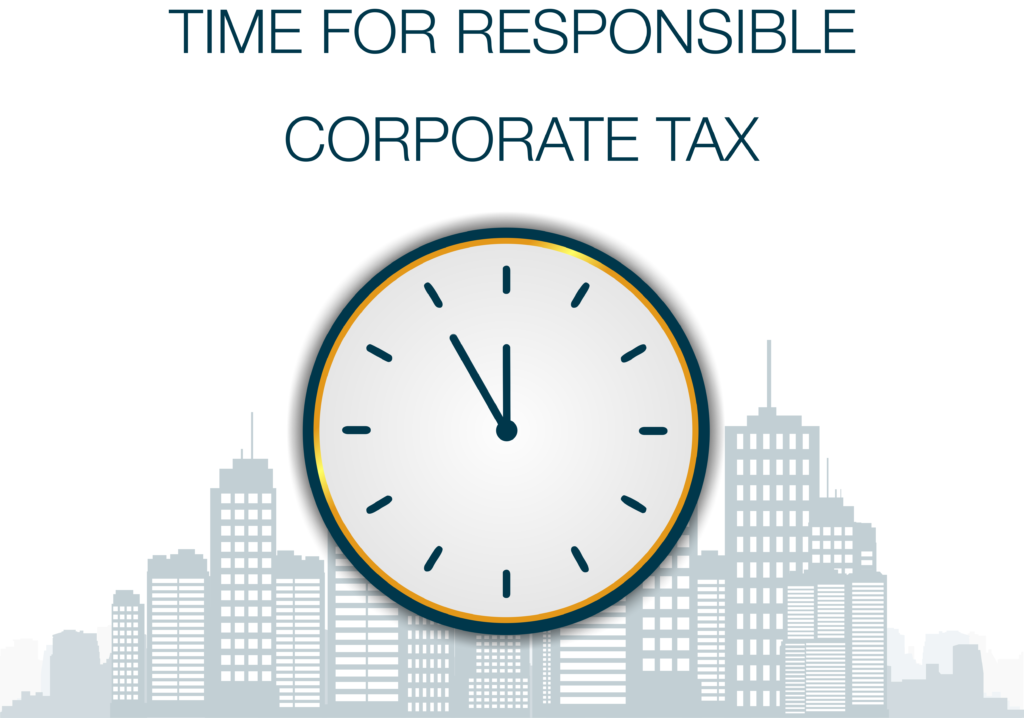Tax havens and corporate responsibility
Should companies’ use of tax havens and aggressive tax planning be considered as a question of policy, law or corporate responsibility, also called CSR or ESG? It is one of the questions now highlighted by the COVID-19 crisis.

The news quickly spread around the world, when Danish politicians decided that companies using tax havens should not be allowed to receive crisis relief from the COVID-19 support schemes. However, according to the Danish media TV2 News, more than DKK 260 million has already been allocated to several companies related to tax havens.
It has created a huge debate. On one side, some tax experts considered that the tax transactions being used were usually meant for reducing or avoiding tax payments. On the other hand, the companies felt that they were wrongfully attacked. They believed that they have paid the taxes they are obliged to and claimed that the tax havens used were not on the EU’s official list of non-cooperative jurisdictions for tax purposes. In some cases, they argued that no corporate income taxes were owed because of deficit. And they were supported by other tax experts who contended that everything was done within law.
The debate feels like a déjà vu and a repetition of the political and legal arguments that always flare up whenever there is yet-another-revelation of tax scandals such as Dividend Stripping, Panama Leaks, Paradise Leaks, Lux Leaks – you name it.
Perhaps the time has come to drop this political and legal approach. Instead we could consider corporate tax as an issue to be handled just as other environmental, social and governance issues (ESG). Under this lens, the use of tax havens and aggressive tax planning without good explanations will be seen as controversial and unacceptable as corruption and bribery.
This responsibility approach is supported by more and more international institutional investors, including Danish pension funds and municipalities. In collaboration with some of these, we have developed a methodology and process for assessing the extent to which private companies are aligned with both the letter and spirit of corporate tax regulations and other main principles of responsible corporate tax. In addition, we have developed a process for encouraging the companies to move in the right direction via engagement dialogues. Here are some of the 20 plus key performance indicators that we examine:
Principles of Responsible Corporate Tax
Firstly, the company’s board of directors should officially express their support for the widely accepted recommendations and guidelines on responsible tax by international institutions such as the OECD, PRI, GRI or the B Team business network. The board should also recognise the main risks associated with corporate tax evasion and avoidance, such as creating unfair competition among countries and companies, erosion of public revenue, which finances essential services such as education, infrastructure, crisis response etc.
Secondly, companies should adhere to the main principles of responsible tax. One of these is that all tax-related transactions should be based on genuine business substance and commercial operations and that aggressive tax planning should be avoided, e.g. using tax havens or artificially fragmented arrangements with the sole purpose of reducing tax payment.
Another principle is to follow both the spirit and the letter of tax laws, i.e. avoid dubious tax transactions in the grey area that can potentially conflict with the policy or legislative aims.
But commitment and declarations of intent are only one step in the right way. The most important thing is the concrete implementation. Hence, thirdly, companies have to establish robust management and governance systems to ensure these tax principles are implemented.
Here it is especially important to involve the Board of directors in providing oversight of the implementation and monitoring the effectiveness of such efforts. A system of control for tax-related risks, including a whistle-blower scheme, must be put in place. Relevant staff should be continuously trained. And like other important ESG issues, such as climate change, working conditions, etc., responsible tax has to be a part of an ongoing dialogue with the main stakeholders.
Fourthly, companies should demonstrate that a fair share of their earnings is actually paid in corporate tax. Exactly how much is a question of political views that vary between individuals and from country to country. The idea is not about paying as much as possible, but about meeting the corporate tax level decided by the respective democratically elected representatives. And there might be good reasons for companies to pay nil or very little tax in some years, due to deficits or large investments.
Finally, companies should report transparently and in an understandable way on all relevant corporate tax matters. It often nearly takes an auditor’s degree to comb through corporate financial filings to figure out the amount of tax actually paid by individual companies. But any responsible company should seek to make it clear, what the actual effective tax rate is, compared with the statutory corporate tax rate.
Last but not the least, in order to avoid suspicion of unacceptable use of tax havens, it is essential for companies to disclose their business activities and actual tax payments in all relevant tax jurisdictions, according to the so-called country-by-country principle.
The companies that now feel being “unfairly” critiqued for both reducing their tax payments using tax havens and asking for COVID-19 crisis support, could strengthen their positions in the public debate, if they show how they meet these principles for responsible corporate tax.

